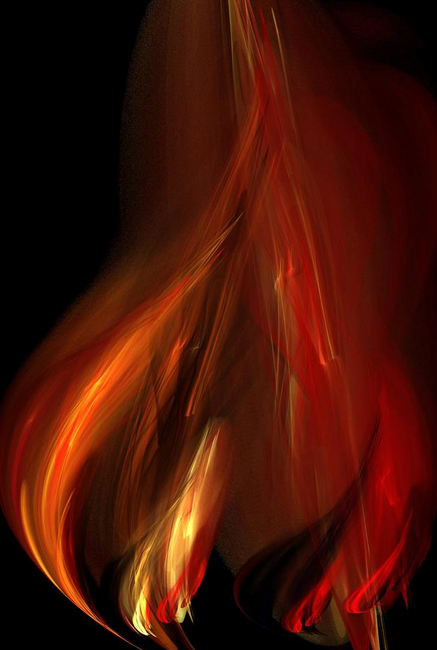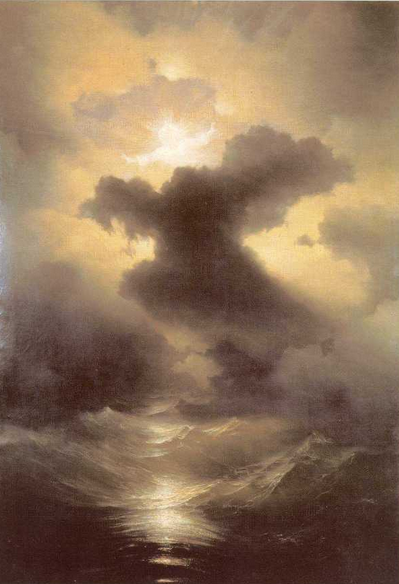If you haven’t seen Endgame, stop reading now. I’ll try not to post any spoilers until I get a few paragraphs deep, but I am eventually going to drop a few. Consider yourselves forewarned.
- - -
- - -
- - -
- - -
So, I loved Endgame. I laughed, I cried, I clapped and shouted, “No!” in the theater. Just behind Shazam, the multiverse Spiderman, and Wonder Woman, Endgame falls right in line with my top superhero movies of all time.
The CGI battle scenes were try-not-to-stand-on-the-theater-seat epic. Relational tension and resolve were near perfection, considering the genre and backstories.
Watching what time does to human hearts broken by failure, loss, and disillusionment felt honest. What do we do when it all falls apart? Some of us organize. Some of us hide and drink. Some of us join support groups. Some of us let the anger of losing it all drive us to destroy.
I loved the camaraderie of a risk-it-all fellowship; the fierce determination of a band of women standing firm and proclaiming, “Just so you know, she has backup”; the way best friends fight to beat each other to die for each other.
The end... well, the end broke my heart because “that guy” has always been my favorite superhero. I didn’t cry during, “Mr. Stark, I don’t feel so good.” This one— this one hurt. I’m still not okay about it.
Despite all this, Endgame dug a little too deep into the Mines of Moria for me, unearthing an ache that probably bears discussion. Actually, I almost wrote about this after seeing Infinity War, but I decided to wait and see how EG turned out. Now I know.
Before I hit on this, though, please understand what I’m not saying. I’m not saying the movie is bad. I’m not saying the movie is anti-Christian propaganda or that masses of people should protest it, or anything of the sort. I’m writing about this confessionally—like I might write about a classic book like 1984 or a classic movie like the 1968 Planet of the Apes—both of which I love. I’m saying, “What’s here? Why is it here? What does this film reveal about my own fears, wounds, and suspicions and those of our present culture?” This post is exploratory, not condemning. It asks what we can learn from a flicker on the screen of the human consciousness.
For a couple of years, friends (like David Mitchel) and I have been talking about how the greatest opposing force facing modern Christianity isn’t obvious evil. Our fiercest opponent is human morality that considers itself superior to the morality of God.
Chesterton wrote about the danger of virtues splitting off and separating from their core a hundred years ago, and his warning has come to fruition in 2019. Nobody cares about Nietzsche’s “God is dead” these days. The resistance of our time isn’t atheistic but accusatory. It points a finger and says, “That God is immoral.”
“After all, he commanded certain people to be stoned for hundreds of years.”
“After all, he commanded women to sit outside their own community during their monthly periods.”
“After all, he rained down fire, and caused horrible plagues, and slaughtered firstborn babies.”
“After all, he lets people go into eternal torment if they don’t check off the right belief box before they croak.”
“After all, he snapped his fingers and, ‘Poof,’ he turned all the people of the world to dust except for a single family in a boat—hoping to reboot a broken, self-destructive world.”
Sound familiar?
The first time I read 1984, I broke out into a cold sweat when I read about Big Brother’s demand for love instead of mere obedience. I could feel the theological tension. Whether Orwell meant it or not, the soteriological parallel nearly choked me—the severity of an impossible dilemma: either learn to feel devotion from the heart or experience endless torment. There is no middle ground.
I was horrified. Paralyzed.
I felt something similar watching Thanos.
My soul began to cry out, “Who? Who has the right to eliminate so much of the population, simply because he sees how broken it is?”
Then, in the dark of that theater, my second sight flashed with a Citizen Kane newsreel. I saw human masses drowned by a global flood. I saw entire cities obliterated by fiery hail. I saw Lot’s wife turning to a pillar of salt.
Before me roared Thanos with a cruel hand wrapped around the neck of Nebula, that quivering daughter who is never good enough. He demands utter allegiance or else...or else...
Pulling the blanket I always carry into the theater up around my neck, overcome by the cold fear of God, I shivered.
I say “cold fear” because this sensation is very different from what I call the “hot fear” of God. The cold fear of God is the stuff of my nightmares—not the stuff of my worship.
The cold fear of God whispers that he is demanding, detached, and heartless.
The cold fear of God whispers that he is egotistical, demanding allegiance at the cost of the eternal suffering of his lessers.
The cold fear of God whispers that he has a favorite daughter, and I will never be she—no matter what I sacrifice.
The cold fear of God whispers that his goodness isn’t really good—that he is an alien force who sits with mad patience on a distant rock, churning over a skewed ethic, and counting down the seconds until he can snap us all to dust.
I don’t know if there will be a literal Rapture. Most of my friends think this concept was invented by John Darby in the 1800’s. I don’t really agree with them because I’ve read stuff that makes me think otherwise, but I’m also not fully on board with the pretribbers. In this age where everybody is sure about everything, I don’t know this. I’ll have to study more to figure out where I stand.
But after watching Infinity War, I realized that if such a thing ever should happen, it will be interpreted by those who remain as the work of a Thanos-type power. It will make resistance seem just. It will rally the troops, spiritual and earthly, and as they attempt to defy the “One Who Removed,” they will feel noble and right.
My family kept asking me why I was so quiet on the ride home. This is why.
I didn’t want to talk about it yet.
I needed time for the hot fear of God to replace the cold.
Sitting in that theater, I felt the recurrence of the Edenic slither, I heard the echo of, “Eve, hath God really said,” and the, “Don’t you want to be like God?”
“After all, Eve, you could do this so much better.”
So I needed time to back away from the CGI—the portals—the shining powers—the glorious masses of Wakanda—time to shake off the roar of a thousand secondary virtues that work within a 3-hour redemption plot and spend time with Virtue Proper.
I needed to find the metanarrative within which all lesser narratives live, straining and reaching for what will only be revealed in full in the final “Ah-ha!”
I needed to bathe my own battle wounds—wounds of suspicion and accusation of the divine—in the blood of the God who not only has a moral right to remove life but who spread a glove full of Infinity stones wide and allowed humanity drive a hard stake right through it.
I needed to remember that he will not break a bruised reed. I needed to remember how he knelt to wash the feet of fishermen. I needed to remember how prostitutes, and children, and thieves were drawn to his gentleness. I needed to remember that the groves were his first temples. I needed to remember that his mercies are new every morning.
I needed the hot and holy fear that warms me like a fire—the fear that is the true beginning of wisdom—the fear that roots itself in ethos not just logos—the fear that is more awe than terror—the fear that entails a clear and honest vision of my own limitations more than paranoia over a cage full of rats.
I needed the fear that says, “Good emanates from You, Oh Lord. It is not the sum total of all human virtues.”
I needed a paradox that can never be caught in a straw man. I needed the complexity of a living Person. I needed the magnitude of Job 38:
“Brace yourself like a man;
I will question you,
and you shall answer me.
“Where were you when I laid the earth’s foundation?
Tell me, if you understand.
Who marked off its dimensions? Surely you know!
Who stretched a measuring line across it?
On what were its footings set,
or who laid its cornerstone—
while the morning stars sang together
and all the angels shouted for joy?”
I needed to remember the trilliums that bloom in the mountains.
I needed to remember the deep-forest birth of a doe who will never be seen by the eyes of a human.
I needed to remember the Story before all stories.
I needed to see a glimpse of a God whose ways are incomprehensible at times, who does not fit neatly into a Jungian archetype, nor into one of Vladimir Propp’s file folders, nor into one of Joseph Campbell’s reductions—but a God who cannot be deconstructed on a dissection table by Turgenev’s Bazarov, then boxed in to some mad “Other.”
No genus. No species. He is what he is. The Alpha and the Omega. The beginning and the end.
Behold the holy severity and the paternal tenderness of a Living God.
I do not understand all of the hard things done by my Lord, but I do understand this. For of all the things he could have done with the darkness of the heart of humanity, he chose to be born among simple people and beasts of burden. He chose to be despised, to allow himself to be beaten, to allow himself to be stretched out and nailed to a cross so that people like you and me might have life.
Then he said, “Take this gift I give you. Take it quickly to all the earth, and offer it to everybody you see. Throw it like silver dollars from a parade float. Distribute it like antivenin. Go. Go. Go. Give it away, and give it away again, and give yourselves as I give to you, so that as humanity self-destructs, it might instead have life and have it abundantly.”
This was the cosmic snap. The snap of a God allowing himself to be stuffed into a tomb that became a portal for everyone you know.
Then I saw the whole thing more clearly.
God is not Thanos.
Thanos is the work of governments deciding which lives are not worth living. Thanos is the work of governments deciding which lives are not worth protecting.
Thanos is the work of governments crawling in bed with men who prostitute imitations of religion to maneuver the masses. Thanos is every alternative human morality that says, “We will be like God without God.”
At this, I feel my spirit kneel in wonder, as the illusion slowly turns inside out. Sweet, hot fear chases away the cold, burning away my suspicion and resistance.
This is not a forced love. This is a human looking into the white hot center of the universe and seeing that it shines, and simply calling light light.
All things hold together in him. All things. When the serpentine cold fear returns—when I listen to, “He doesn’t want you to know good from evil, see?”—when I place him in the dock as a suspect—I forget the evidence. My name is carved into his hands. When he had the chance to take it all, he gave to us instead.





















